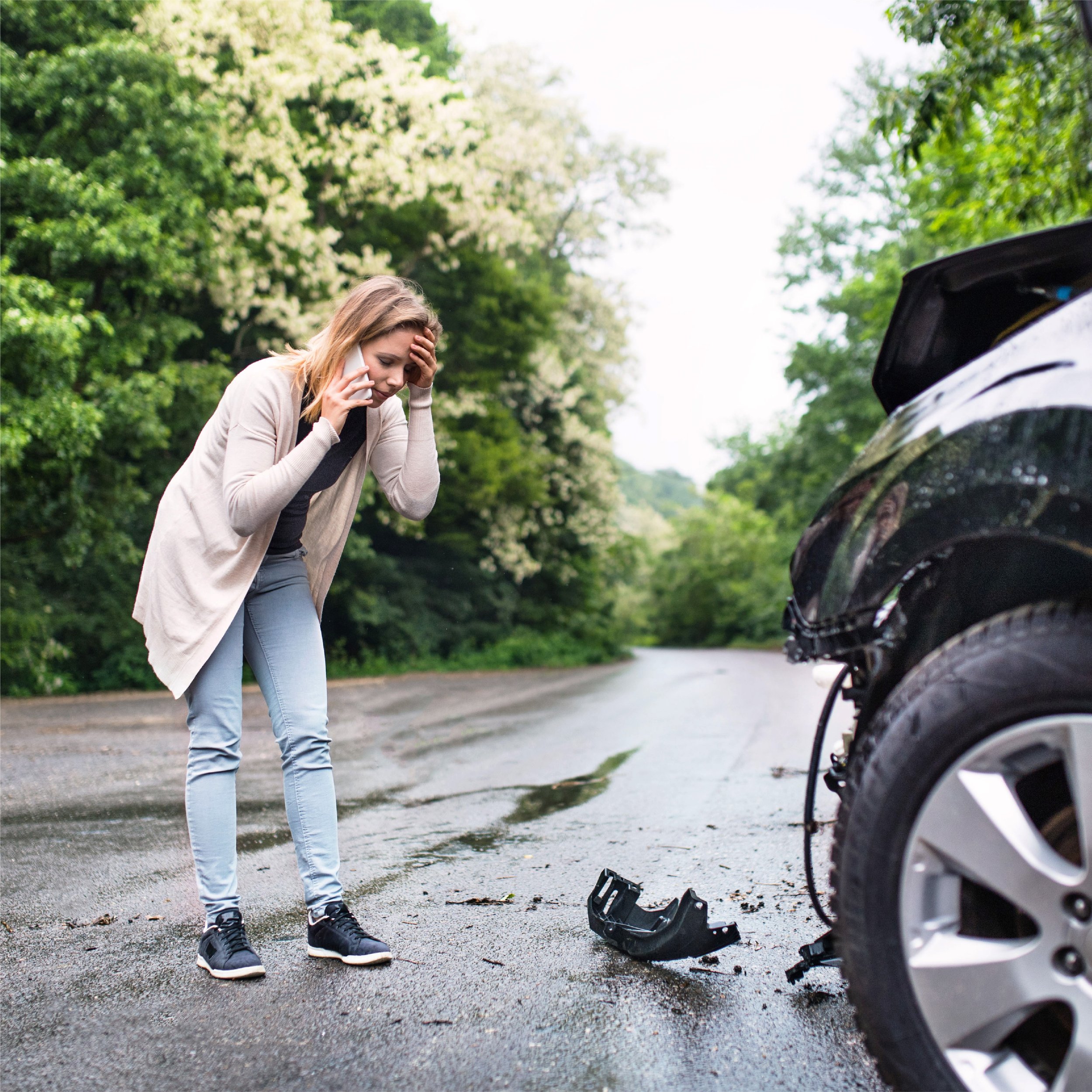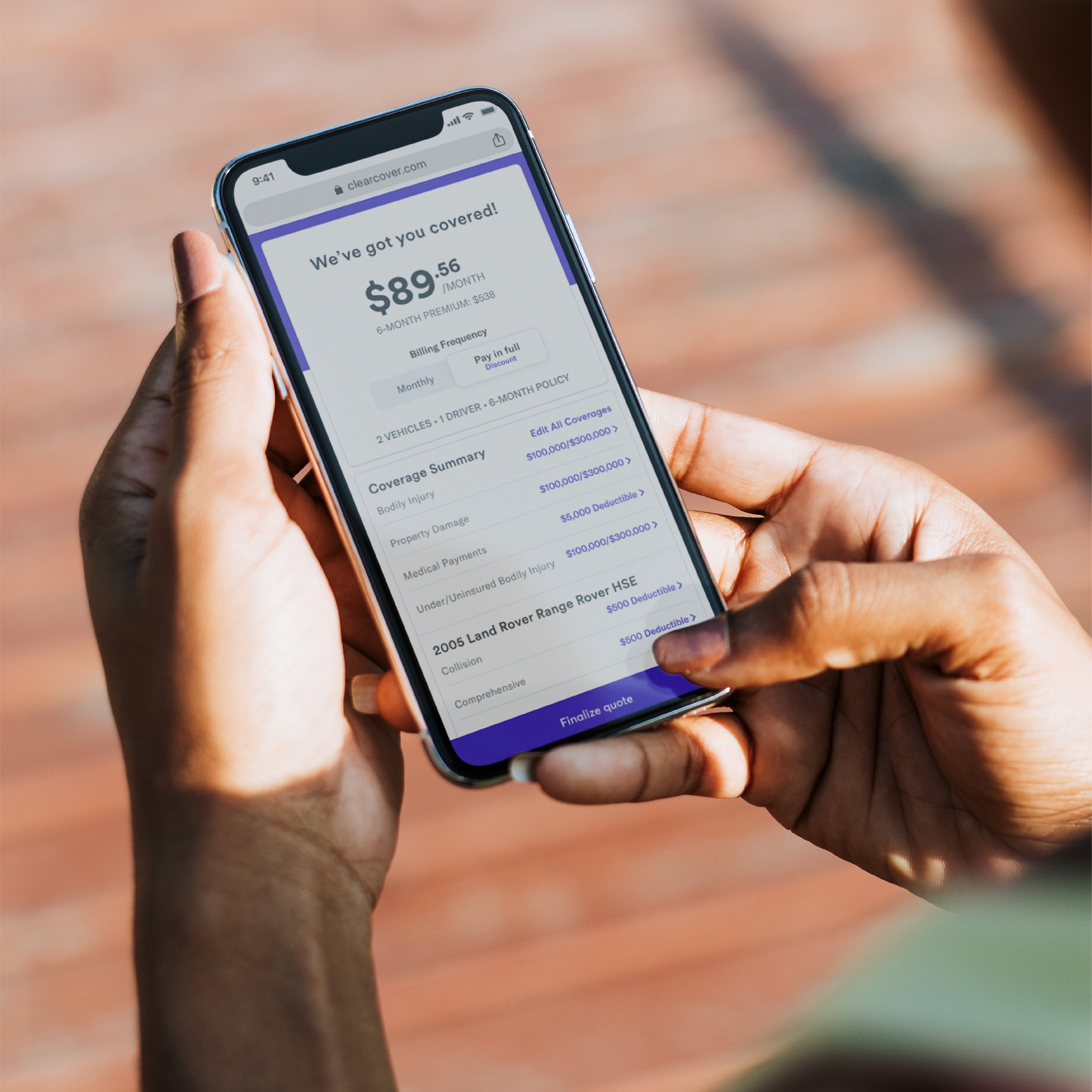What Is a Car Insurance Lapse?
Written by Team Clearcover
We all know we need car insurance to keep our vehicles legal on the road. But what happens if you forget to pay your premium by the due date? Your insurance company may offer a grace period that provides a few days to get caught up without major consequences. When you fail to make your car insurance payment by the end of the grace period, though, your coverage may "lapse". This means your policy is no longer in effect, leaving you without coverage.
Failing to make a payment isn’t the only way your policy can lapse, though, either. You can also lapse by canceling your coverage without a new insurance policy in effect. If your carrier cancels your coverage and you don’t obtain a new policy before the policy cancels, that can result in a lapse, too.
As you can imagine, a lapse in car insurance coverage can lead to a number of different issues. Not to worry—we’ve got your back. In this article, we’ll break down what you need to know about car insurance lapses—from grace periods to accidents during a lapse in coverage and more.
Do Most Insurance Companies Have a Grace Period?
Payment issues can crop up unexpectedly from time to time, so, many insurance companies will offer their customers a grace period. A grace period is a period of time that allows you the opportunity to get caught up with your payment schedule before your coverage lapses.
The length of a grace period will vary based on the specific carrier and state insurance laws. However, it usually ranges from 1 to 30 days. During this time, your insurance company will usually be required by state law to notify you that your coverage is on the verge of being canceled. They’ll typically need to send a letter or email informing you of your missed payment and the payment deadline to keep your policy active.
The Negative Impact of Missing a Payment
If you miss your car insurance payment, you'll likely face a few consequences. The most immediate will often be a late fee, which can be charged the first day following a missed payment. It’s important to note that if you are within your grace period, you can still be charged a late fee. Late fees typically fall between $5 to $25 and can range from a one-time charge to a daily charge, depending on your carrier. A late fee does not mean your coverage has lapsed.
If you fail to make your payment before your grace period ends, your policy will likely lapse, leaving you without insurance coverage. Driving during an insurance lapse is illegal in most states. Additionally, if you get into an accident during this time, you may be held personally liable for all damages.
What Can Occur during a Car Insurance Lapse?
A lapse in coverage can lead to financial and legal repercussions. While we've touched on the negative impact missing a car insurance payment can have, here we’ll dive in a bit deeper into some of the more significant consequences a lapse in coverage can entail.
You will be left without coverage.
Being without car insurance is risky. If an accident occurs, you'd likely be financially responsible for any:
Damage to your vehicle
Medical expenses you incur
Damage to the other person’s vehicle
Medical expenses they may incur, and
Other property damage that occurs, such as private property (like a fence) or public property (like a telephone pole)
Worried about being in an accident without enough insurance? Discover how fast and easy it is to obtain affordable insurance through Clearcover.
Your Carrier May Cancel Your Coverage
If your insurance lapses due to non-payment, your insurer is under no obligation to offer a new policy or reinstate your old policy. In this case, you would need to find a new insurance company and go through the underwriting process to obtain new coverage.
Your insurance company may also choose to cancel your policy after an accident or too many claims. While they can stop coverage mid-policy, it is more likely that they will non-renew the policy, which means you have coverage until your policy period ends, but they will not issue a new policy when it is time for renewal.
Shopping for a new car insurance policy after having your policy canceled or non-renewed can be challenging. It's recommended to avoid losing coverage. If you do lose your coverage, get it reinstated as soon as possible.
You Might Face a Suspended License or Fines
Not having car insurance can make life really difficult, really fast. If you are in an accident or are pulled over without insurance, you may face whatever penalties are dictated under state law.
Most states issue fines of a few hundred dollars for the first offense, but it isn't uncommon for repeat offenses to result in fines of up to $5,000. Beyond fines, you could face other penalties subject to state law, such as suspension of your license and vehicle registration or even jail time.
Your Policy Could Increase in Price
You may experience increased insurance rates following a lapse. Whether you obtain your insurance from your existing insurance company or a new one, the lapse can result in a surcharge to your future policy.
How much more will insurance cost after a lapse? It’ll certainly vary from one person and insurance carrier to the next, but drivers who've had a lapse in coverage pay about 11% more for their insurance than those who have maintained continuous coverage.
Your Vehicle May Be Repossessed
If your vehicle is financed or leased, your financing company will usually require you to maintain a certain level of insurance coverage. Technically, the financing company is still the owner of the vehicle, so this requirement aims to protect their financial interest in the vehicle.
Financing companies often require that you list them as a lienholder on your insurance policy. If you experience a lapse in coverage, your insurance company will notify any lienholder on your policy. Depending on the terms of your loan agreement, a lapse in insurance may legally entitle your financing company to repossess the vehicle. In this case, in order to get your vehicle back, you would need to secure new coverage and pay any repossession and impound fees.
What Causes Car Insurance to Lapse?
Failure to make payments is the most common reason that car insurance lapses. However, there are other ways your policy can lapse, too.
A lapse in coverage could also occur when changing insurance companies. If you cancel your old policy before your new one is in effect, you could experience a lapse in coverage during the time between the two policies.
If you're considering switching your car insurance coverage, avoid a lapse and make the switch confidently by following these three simple steps.
What Happens If You Get into an Accident after a Lapse in Coverage?
If you're in an accident after your insurance has lapsed, you'll risk facing legal and financial consequences. The specific consequences you may encounter will vary based on your state and situation.
Legal consequences of driving without insurance range from fines, to license suspension, to jail time. Some states may require you to obtain a Certificate of Financial Responsibility (also known as an SR-22) to reinstate your license.
If you injure another person or cause damage to someone else’s vehicle while driving uninsured, you will likely be held personally liable for the damages. If you are unable to cover the expenses directly, the other person's insurance may kick in to cover their expenses. However, their insurance could then subrogate against you, meaning they would seek payment from you individually. This could be in the form of a court-awarded judgment that could result in wage garnishment, bank levy, or real estate liens. Even if you do not have assets at the time of the judgment, court-awarded judgments have the potential to last years.
If I’m Not Driving My Vehicle, Do I Still Need Car Insurance?
There are a number of reasons you may find your car sitting idle for an extended period of time. For example, you may be traveling or away for a few months, deployed for military service, or have inherited a car from a family member. It’s natural to assume that if you’re not driving or using your car, you wouldn’t need car insurance.
However, whether you're driving or not, your car must be insured in almost all states. While there are a small number of states that do not require liability insurance, all states have financial responsibility laws. In general, maintaining an active car insurance policy is a financial responsibility that comes with owning a vehicle.
If you have your vehicle registered with the state, you're typically required to carry insurance. While you must maintain active coverage for your car, even if you know you won't be driving, you may wish to consider reducing certain coverages on your policy to better suit your current situation. However, it’s important to remember that certain car insurance coverages can help even when you aren't driving. Comprehensive coverage, for example, covers incidents "other than collision," such as a tree falling on your vehicle or theft.
Some states do allow you to forego insurance once you return your license plates. If you have a vehicle that you know won’t be on the road for some time, you may be able to remove it from your insurance policy. You would need to obtain coverage when you’re ready to drive the vehicle again.
In addition to state laws, you may face additional requirements from your lender, depending on the terms of your agreement. If you lease or finance your vehicle, the lienholder may require proof of coverage at all times. If they don't receive proof that you have adequate insurance within a certain amount of time, they could repossess the vehicle.
How to Prevent a Lapse in Coverage
There are a few things you can do to avoid experiencing a lapse in car insurance coverage:
Set up automatic payments: Setting up automatic payments and keeping your credit card information up-to-date with your insurance company helps ensure your payments are always processed smoothly and on time.
Notify your insurance company if you’re moving: If you’re moving locally, you will need to provide your insurance company with your new mailing and garaging address. If you are moving to another state, it’s important to note that laws and regulations vary from state to state and could impact your coverage. It’s best to speak with your insurance company before you move, as you may need to adjust the coverages on your policy to meet your new state requirements or find a new insurer entirely if your current insurance company is unable to provide you with coverage in your new state.
Carefully read through your mail: Open all mail you receive from your insurance company and be sure to read it thoroughly. This way, you'll be aware of any changes to your policy.
Are You Looking for the Right Insurance Coverage? Call Clearcover Today to Get Covered!
If you're looking for car insurance coverage, don't stress—we're here to help you get back on the road. Clearcover makes it quick and easy to get the car insurance coverage that’s right for you. For your free, no-obligation quote, explore your coverage options online and see what you can save today!




